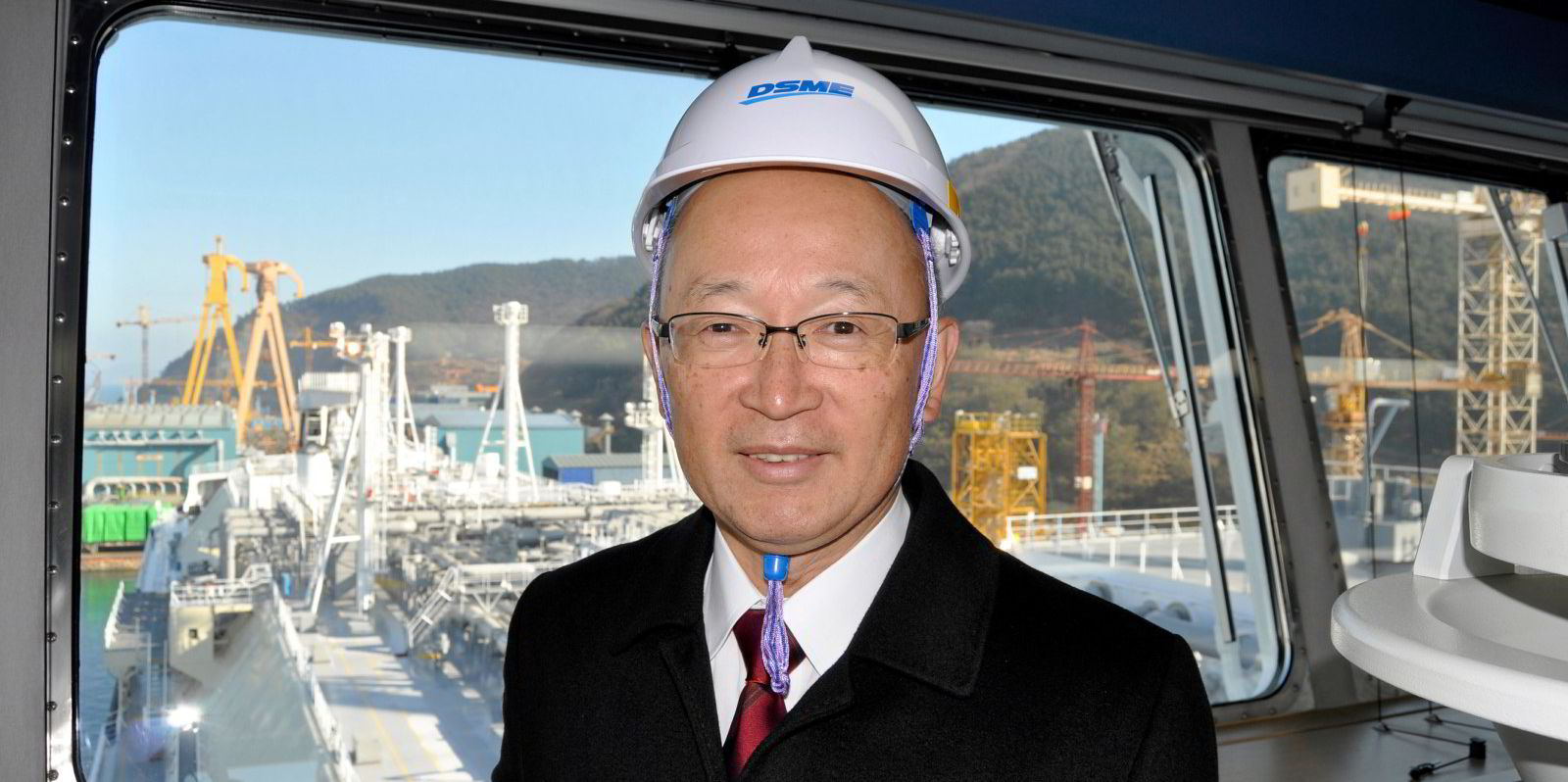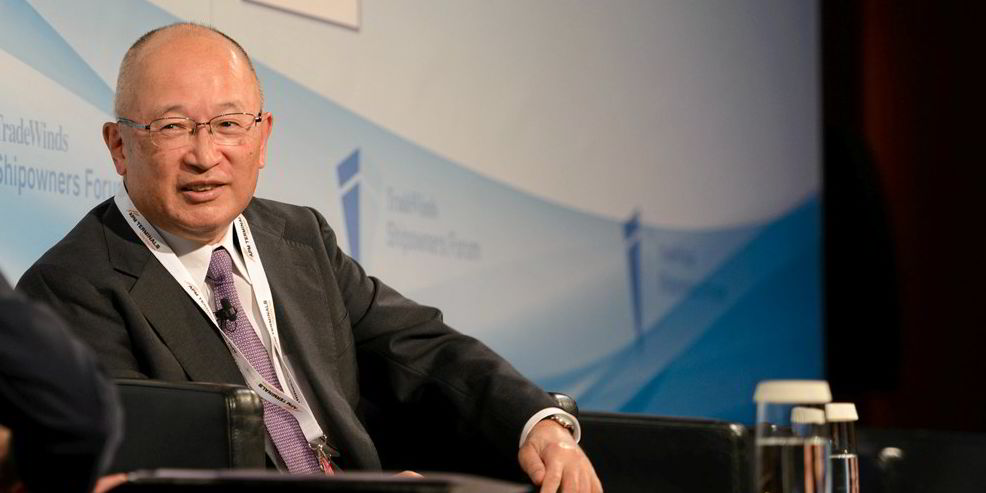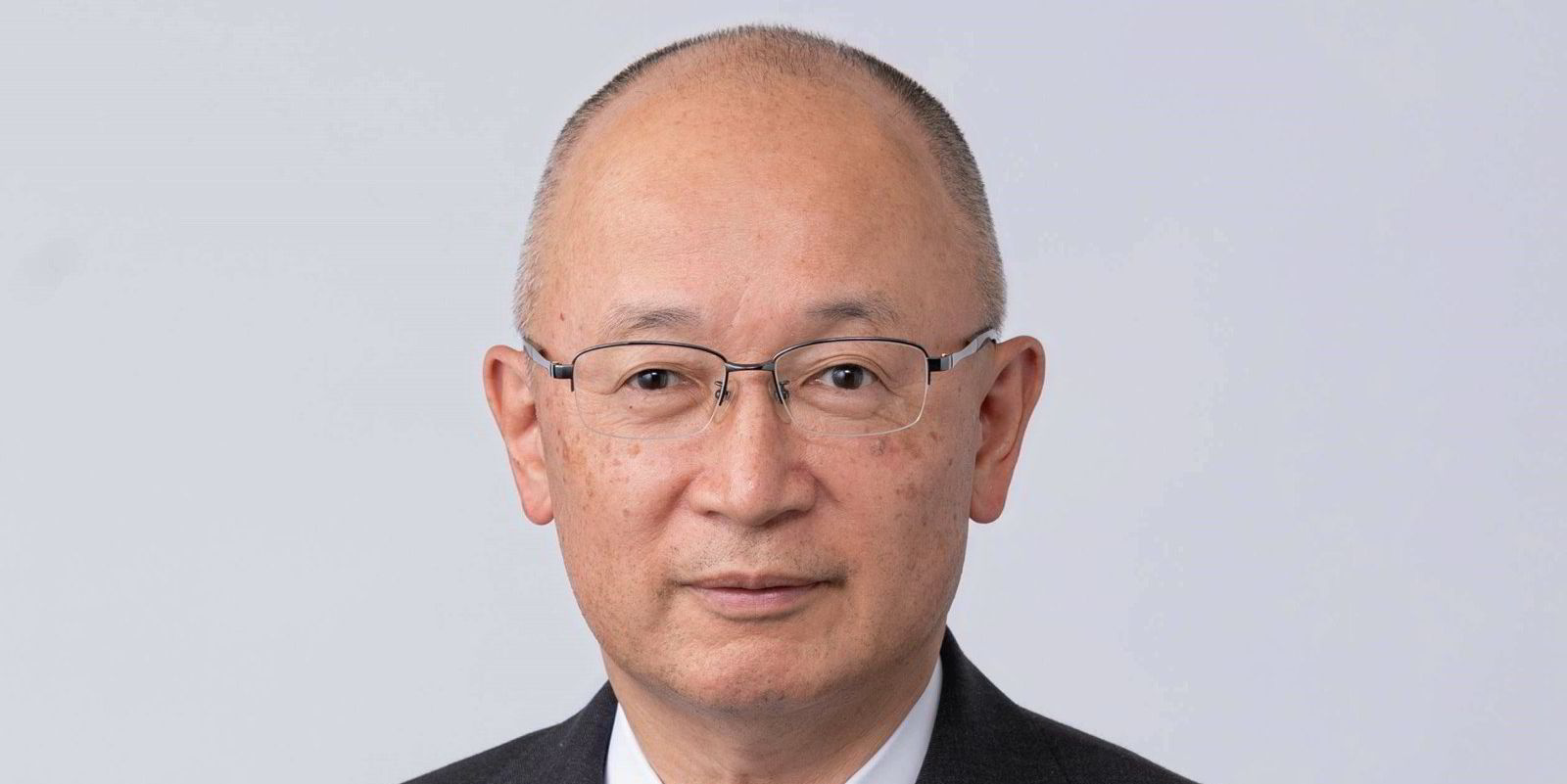A global pandemic and a trade-disrupting war were not in the plan when Takeshi Hashimoto learned he had been promoted to the chief executive position at Japan’s largest shipowner, Mitsui OSK Lines.
MOL lifer Hashimoto, who started his working life in finance for the company and made a name for himself in the energy and LNG businesses, was clearly among the picks for the CEO position.
But a journalist recalled that when asked if he thought he would make it to the top job Hashimoto said not.
So imagine then finally becoming president and CEO only to be hit by a double whammy of Covid and Russia’s war in Ukraine.
“Operationally it was a nightmare,” Hashimoto said of the pandemic period, explaining that the company had to sort out so many issues every day like crew changes, alterations on destinations and insurance cover.
On Russia’s war in Ukraine, he said MOL’s customers and the Japanese government are requesting the company to continue its shipments of Russian LNG. He described navigating this as like walking “a tightrope” daily.
“It has been quite a stressful two years,” he said.
On the plus side, MOL has emerged positively financially.
Hashimoto, who has been described as “project-orientated” in his approach to business, said the cash gives the company considerable freedom for investment or diversification of its business, including merger and acquisition opportunities.
‘Strategy and growth’
“I feel my responsibility dramatically increased due to that change in circumstances,” he said. “If our decision-making is good it will be handsomely rewarded in five to 10 years.”
Hashimoto has worked for MOL for over 40 years and in the company’s international business since the 1990s.
He said this time spent working with partners from all over the world has helped him formulate his ideas on transforming the organisation.
This includes MOL’s more recent experience as a partner in the Ocean Network Express container line along with some of the ex-energy major employees who have joined the company.
But he is also very self-aware, particularly as he sets MOL on course for what he believes is one of the biggest reorganisations in its history.
“I know my own limits of capability so I have decided to set up a more powerful management team,” he said, explaining that the company is adding a chief operating officer and chief strategy officer to its C-suite group.
“I really want to dedicate my responsibilities to these chief executive officers to carry on our day-to-day business,” he said. “I want to concentrate more on strategy and growth.”
Those who have worked closely with Hashimoto over the years refer to him as a “very popular” CEO within the company.
Several described him as “a man of his word” who is “actually doing what he said he would rather than talking about it”.
They spoke about his emphasis on environmental goals — highlighting investments in a wind farm in Taiwan and a CO2-experienced Norwegian shipping company, along with future fuels — the performance of existing contracts and with safety very high on the agenda.
“He has really taken the bull by the horns and given people confidence in what he’s going to do,” one said.





